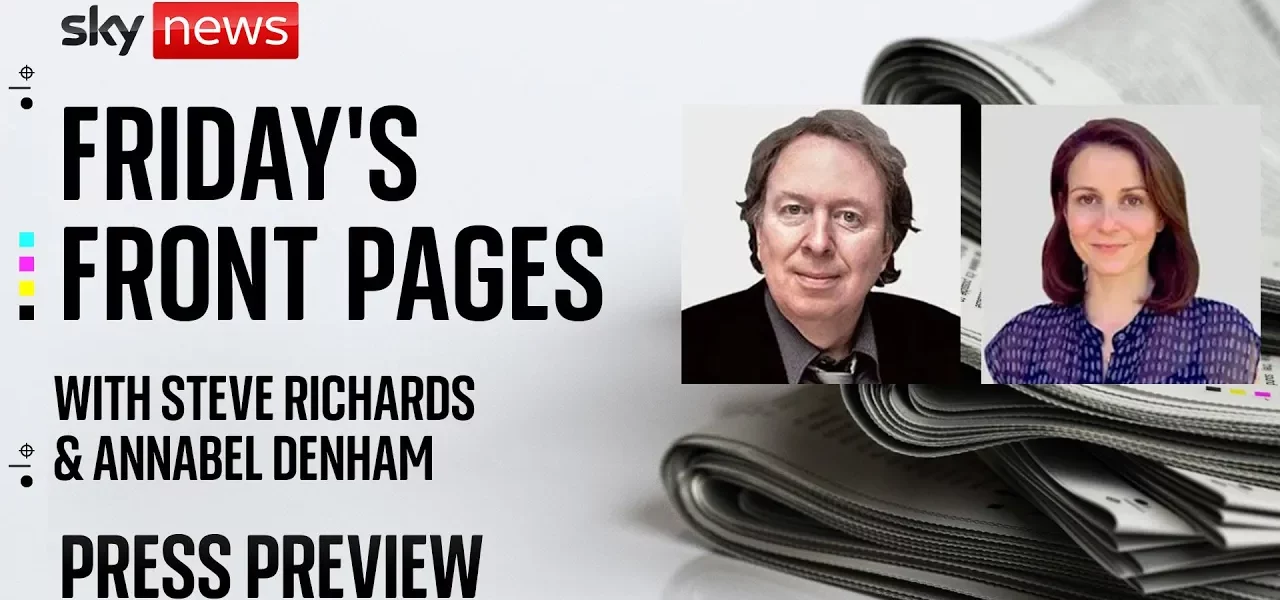The Press Preview: Labour’s Election Manifesto and Its Economic Implications

Join columnist Steve Richards and Deputy Comment Editor Annabelle Denham as they delve into the significant headlines surrounding Labour’s election manifesto, exploring its economic implications and the public’s perception of the party’s plans.
Introduction
The political landscape in the UK is currently abuzz with discussions surrounding Labour’s recently launched election manifesto. With an ambitious promise to inject £8.6 billion into the economy, primarily through stringent measures against tax avoidance, the manifesto has sparked a flurry of responses from various quarters of the media and political analysts. This article will explore the key points raised in the manifesto, the public’s sentiment towards Labour’s plans, and the critiques aimed at their economic strategies.
Labour’s Economic Proposal
At the heart of Labour’s manifesto is a commitment to reinvigorate the UK economy through substantial financial investment. The party aims to fund this ambitious agenda primarily by targeting tax avoidance and closing loopholes, particularly the non-domicile tax loopholes that allow wealthy individuals to evade taxes.
Key Financial Commitments
- Investment of £8.6 billion into public services and infrastructure.
- Focus on wealth creation through sustainable economic policies.
- Promise to avoid austerity measures while maintaining fiscal responsibility.
Media Reactions and Critiques
The release of Labour’s manifesto has not been without its detractors. Various newspapers have raised significant questions regarding the feasibility of Labour’s financial promises, with particular emphasis on how the party plans to fund its proposals amidst a backdrop of rising public spending and economic uncertainty.
The Guardian’s Perspective
The Guardian, a publication traditionally sympathetic to Labour, has expressed skepticism about the clarity of the party’s financial plans. Analysts are questioning whether Labour provides enough detail on how they will deliver on their promises, especially in the context of a flatlining economy.
The Times’ Concerns
The Times has gone further, alleging a “conspiracy of silence” over Labour’s tax plans. They highlight that while the party has promised no additional borrowing, the reality of increased public spending demands serious trade-offs that the manifesto fails to address.
Public Sentiment and Economic Realities
Public opinion reflects a growing awareness of the economic challenges faced by the UK. Many voters are concerned that, despite Labour’s hopeful rhetoric, there is a significant gap between promises and practical solutions.
Defending Against Conservative Critiques
In response to Labour’s manifesto, Conservative leaders, including Chancellor Jeremy Hunt, have branded Labour’s financial strategies as a “tax trap,” warning voters against falling for what they describe as hidden tax increases.
Chancellor Jeremy Hunt’s Position
Jeremy Hunt has articulated a narrative that positions Conservative fiscal policies as responsible and necessary for the UK’s economic recovery. His warnings about Labour’s plans resonate with voters concerned about rising taxes and government spending.
The Role of Media in Shaping Perceptions
The media’s framing of Labour’s strategies plays a critical role in shaping public perceptions. Headlines emphasizing potential tax hikes and economic uncertainties can significantly affect voter sentiment, particularly as the public grapples with the implications of past economic policies.
Looking Ahead: Euro 2024 and Beyond
As the political discourse unfolds, attention also shifts towards upcoming events such as Euro 2024, where the England football team’s performance may serve as a unifying factor for the country. The hope for a trophy after 58 years is a reminder of the potential for optimism amidst political and economic challenges.
Football as a Metaphor for National Unity
The narrative surrounding the England football team provides a unique lens through which to view national sentiment. The possibility of success in Euro 2024 can serve as a metaphor for Labour’s ambitions to restore hope and growth in the UK.
Conclusion
Labour’s election manifesto presents a bold vision for the UK’s economic future, yet it is met with considerable skepticism from both the media and the public. As the political landscape evolves, the party must address critical questions about funding and economic sustainability to gain voter trust. The next few weeks leading up to the election will be crucial in determining whether Labour can translate its hopeful promises into viable policies that resonate with the electorate. For ongoing updates and in-depth analyses, stay tuned to our political coverage.
“`




